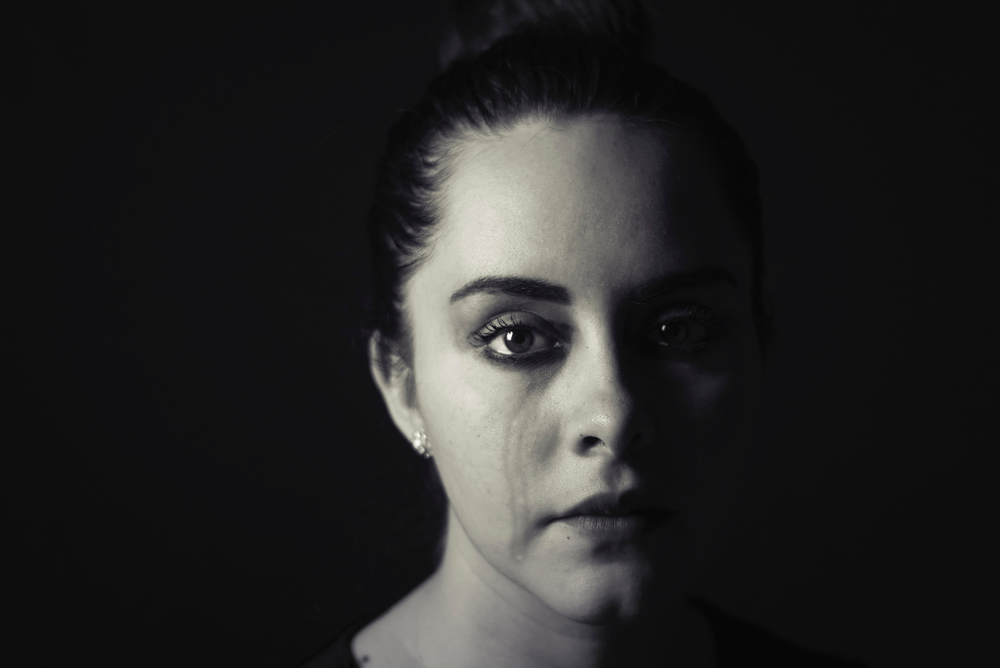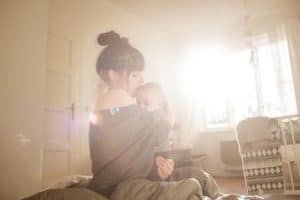Welcoming a new child into your life is a wonderful experience but it can also be incredibly stressful. Your entire world is completely different and suddenly there is a new life completely dependent on you. Even if you’ve already had children before, a new arrival can bring on a swift change in your moods, your outlook and even aspects of your personality. Is it the ‘baby blues’ or is it postnatal depression?
Often, we hear these shifts (which can happen to both mothers and fathers) dismissed as ‘baby blues’ – something that everyone goes through and that you can get through if you just tough it out. What we know, however, is that this is a potentially dangerous period where just brushing bad feelings off can lead to more serious mental health issues down the track.
The most important step you can take in this period is to seek professional, medical advice as soon as possible. While discussing your feelings and concerns with your partner, friends and families can be cathartic, you must ensure that you touch base with an expert who can appropriately assess your situation and offer a potential diagnosis.
‘Baby blues’ vs postnatal depression – what’s the difference?
A psychologist will be able to work with you to distinguish the difference between the commonly known ‘baby blues’ and the more serious postnatal depression. Your psychologist will also be able to discuss treatment, strategies and provide the kinds of answers you won’t find if you are just searching on the internet or talking with friends.
What are ‘baby blues’?
Baby blues are a phenomenon that mothers (and some fathers) experience in the first few days after giving birth. It’s that sudden shift of perception when the realisation of the enormity of what has occurred hits you – your life will simply never be the same and it can take its toll on your sense of identity and stability.
Baby blues can sometimes be related to the ‘coming down’ from the high of pregnancy and birth. You spent so long planning and imagining and dreaming and suddenly your baby is here – in all of their screaming, crying glory. It can be a shock and take some time to really sink in. Your body experiences significant hormonal changes in the days after birth which can contribute to these ‘blues.’
What do the ‘baby blues’ feel like?
You may have the baby blues if you’ve experienced any of the following:
- Bursting into tears out of the blue for no discernible reason
- Intense worry and concern about the baby’s health or sleep (constant checking for breathing, temperature, anxiety over bowel movements)
- Complete exhaustion due to lack of sleep (common in any new parent!)
- Unstable mood – snappy and irritable, experiencing intense emotions, rage
- Inability to concentrate and seem to be forgetting everything
This is not an exhaustive list, and having some of these symptoms does not necessarily mean you are suffering from baby blues. These symptoms could be assumed to last from between a few days to a few months and, again, the best way to be sure is to speak with a medical professional.
How do you cope with baby blues?
You need to be able to communicate and ask for help. It’s tempting to want to be ‘super mum’ and do it all yourself but you simply can’t. No one gives out any medals to ‘mummy martyrs’, so if help is available, take it!
Be kind to yourself. This too shall pass and things do get easier. Your baby will grow and you will grow with them as you both become more used to each other. You need to set limits and boundaries as to what you are willing to comfortably do and commit to and put your energy where it’s needed instead of fulfilling everyone else’s expectations. Engage in self-care wherever possible – a bath, a walk, a massage, a date night, a girls’ night. Do what you need to do to feel like YOU, not just a mother-machine.
What is ‘postnatal depression’?
Postnatal depression is more severe and serious than baby blues. Selecting a psychologist who will be in tune with your personality, values and beliefs is a vital step towards navigating this dangerous territory.
What does postnatal depression feel like?
You may have postnatal depression (PND) if you experience the following. Symptoms can appear within weeks or months of giving birth (sometimes even a significant time later) and may involve combinations of the following:
- Abrupt, sudden mood swings that feel and appear quite dramatic
- Obsessive or intrusive thoughts
- Constantly tired or lacking in energy with no sense of respite or recovery
- Sadness or a constant low feeling for no apparent or obvious reason
- A lack of interest in things that previously used to bring joy and happiness (eating, spending time with friends and family, relationship with partner, hobbies and interests)
- Sleep disturbances (no sleep or too much sleep)
- Withdrawing from social interaction with friends, family, colleagues and associates
- Change in appetite (excessive appetite or no interest in eating)
- Thoughts of harming yourself or your baby
- Feeling like you cannot bond or connect with your baby or other children
- Thoughts of death or suicide (suicidal ideation)
How do you cope with postnatal depression?
Your first port of call should be to see your general practitioner as soon as possible. They will then be able to write you a referral to see a psychologist or a psychiatrist.
A potential path that you might take is something called CBT which stands for Cognitive Behavioural Therapy. This is a way of looking at addressing problematic thought patterns by examining how your behaviour, feelings and thoughts are linked. It’s about improving relationships by improving your own self-image and how you see the world. You could find out more via an online program like Mindspot but, again, this should not take the place of engaging with a medical professional face-to-face.
It’s important not to be ashamed. Be it baby blues or postnatal depression, you’re not alone. This is a very common experience and it’s one that we should be speaking more about instead of isolating or looking down on sufferers. You can connect with others around you via support groups or even online through Facebook mothers groups and parenting communities.
Lastly, take care of yourself, mama. You cannot draw from an empty well. You are the backbone of your family and YOU need to be strong FIRST in order to help others.
This is a Guest Contribution by Brisbane Counsellor, Dr Rachel Hannam. Dr Rachel leads an all female team of psychologists working with new mums struggling with their new babies.














